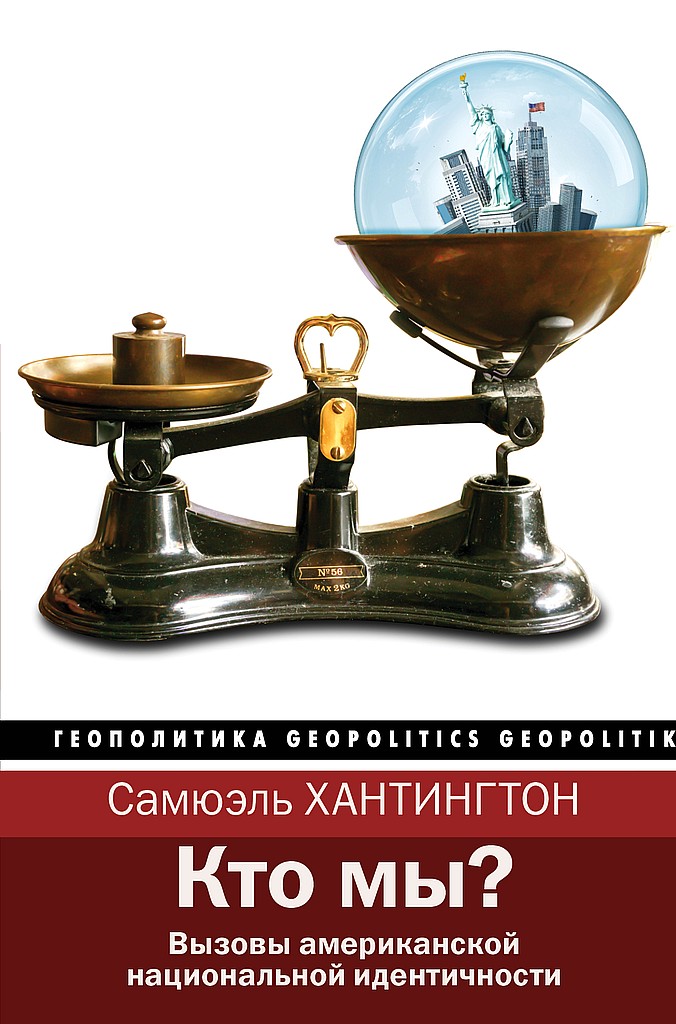ed.,
A Lot to be Thankful For, (New York: Public Agenda, 1998).
{261} Boston Globe, 31 August 1997, p. A12; New York Times, 15 August 1997, p. A39; New York Times, 5 June 1998, p. A12; Glenn Garvin, «Loco, Completamente Loco: The Many Failures of ‘Bilingual Education,’» Reason, 29 (January 1998), p. 20.
{262} James Counts Early, «Affirmations of a Multiculturalist», in Robert Royal, ed., Reinventing the American People: Unity and Diversity Today (Grand Rapids: William B. Eerdmans, 1995), p. 58; Clifford Orwin, «All Quiet on the (post)Western Front», The Public Interest, 123 (Spring 1996), p. 10.
{263} Pamela L. Tiedt and Iris M. Tiedt, Multicultural Teaching: A Handbook of Activities, Information, and Resources (Boston: Allyn and Bacon, 3rd ed., 1990), p. 7.
{264} Mikulski quoted in Mann, The One and the Many, p. 29; Nathan Glazer and Daniel Patrick Moynihan, Beyond the Melting Pot (Cambridge, MA: M. I. T. Press, 1963), p. 16–17, 290.
{265} Mann, The One and the Many, p. 37, 38–39.
{266} Stephen Steinberg, The Ethnic Myth: Race, Ethnicity, and Class in America (New York: Atheneum, 1981), p. 51.
{267} Thaddeus V. Gromada, «Polish Americans and Multiculturalism», 4 January 1997, presidential address at meeting of Polish American Historical Association, in conjunction with American Historical Association, New York Hilton Hotel, New York City.
{268} Betty Jean Craige, American Patriotism in a Global Society (Albany: State University of New York Press, 1996), p. 65–66.
{269} Lilia I. Bartolome, «Introduction», in Alfonso Nava et al., Educating Americans in a Multicultural Society (New York: McGraw-Hill, 2nd ed., 1994), p. v.
{270} James A. Banks, Multiethnic Education: Theory and Practice (Boston: Allyn and Bacon, 1994), p. 3.
{271} Tiedt and Tiedt, Multicultural Teaching, p. xi.
{272} Sandra Stotsky, Losing Our Language (New York: Free Press, 1999), p. 59–62, reporting the research of Charlotte Iiams, «Civic Attitudes Reflected in Selected Basal Readers for Grades One Through Six Used in the United States from 1900–1970» (Unpublished doctoral dissertation, University of Idaho, 1980).
{273} Paul Vitz, Censorship: Evidence of Bias in Our Children’s Textbooks (Ann Arbor: Servant Books, 1986), p. 70–71; Nathan Glazer and Reed Ueda, Ethnic Groups in History Textbooks (Washington, D.C, Ethics and Public Policy Center, 1983), p.15.
{274} Robert Lerner, Althea K. Nagai, Stanley Rothman, Molding the Good Citizen: The Politics of High School History Texts (Westport: Praeger, 1995), p. 153, citing the study by Diana Ravitch and Chester E. Finn, What Do Our 17–Year-Olds Know? (New York: Harper and Row, 1987), p. 270–72; Stotsky, Losing our Language, p. 72–74, 86–87, 90, 294, n20.
{275} Glazer, We Are All Multiculturalists Now, p. 83; Schlesinger, The Disuniting of America, p. 123; American Council of Turstees and Alumni, Inside Academe, 8 (Fall 2002), p. 1, 3, citing the council’s report, Restoring America’s Legacy: The Challenge of Historical Literacy in the 21st Century (2002).
{276} Lerner, et al., Molding the Good Citizen, p. 153, citing U. S. News and World Report, 12 April 1993, p. 56; American Council of Trustees and Alumni, Newsletter, 18 December 2000, citing the council’s report, Losing America’s Memory: Historical Illiteracy in the 21st Century (2000).
{277} U. S. Immigration and Naturalization Service, 2000 Statistical Yearbook of the Immigration and Naturalization Service (Unpublished, selections available online at http://www.ins.usdoj.gov/graphics/aboutins/statistics/ybpage.htm).
{278} Economist, 24 June 2000, p 63.
{279} Organization for Economic Cooperation and Development, Trends in International Migration: Continuous Reporting System on Migration, (2000 ed. Paris, France: OECD, 2001).
{280} World Population Prospects: The 2000 Revision — Highlights, Annex Tables (28 February 2001) (United Nations Population Division).
{281} National Institute of Population and Social Security Research, Population Projections for Japan: 1996–2100 (1997).
{282} Ole Waever et al., Identity, Migration and the New Security Agenda in Europe, (London: Pinter, 1993), p. 23.
{283} Organization for Economic Cooperation and Development, Trends in International Migration, p. 304.
{284} U. S. Immigration and Naturalization Service, 2000 Statistical Yearbook.
{285} Milton M. Gordon, Assimilation in American Life (New York: Oxford University Press, 1964), p. 70–71.
{286} Peter D. Salins, Assimilation, American Style (New York: Basic Books, 1997), p. 6, 48–49.
{287} Gordon, Assimilation in American Life, p. 127, 244–45.
{288} Will Herberg, Protestant Catholic Jew (Garden City: Doubleday, 1955), p. 33–34; George R. Stewart, American Ways of Life (New York: Doubleday, 1954), p. 23, cited in Gordon, Assimilation in American Life, p. 127–28.
{289} Thomas Jefferson, Notes on Virginia, (Chapel Hill: University of North Carolina Press, 1954), p. 84–85.
{290} Michael Piore, Birds of Passage: Migrant Labor and Industrial Societies (Cambridge: Cambridge University Press, 1979), p. 151.
{291} Gordon, Assimilation in American Life, p. 190; Thomas Sowell, Migrations and Cultures: A World View, (New York: Basic Books, 1996), p. 48. For an excellent overview and analysis of the successful assimilation of pre-World War II immigrants and their descendants, see Richard Alba and Victor Nee, Remaking the American Mainstream: Assimilation and Contemporary Immigration (Cambridge: Harvard University Press, 2003), chap. 3.
{292} Samuel p. Huntington, The Clash of Civilization and the Remaking of World Order (New York: Simon & Schuster, 1996), p. 264.
{293} American Muslim Council, Zogby poll, released 28 August 2000.
{294} Kambiz Ghanea Bassiri, Competing Visions of Islam in the United States: A Study of Los Angeles (Westport, CT: Greenwood Press, 1997), p. 43–49.
{295} Corey Michael Spearman, «The Clash of Civilizations in Dearborn, Michigan» (Term paper, Kalamazoo College, Michigan, March 2000), p. 7, quoting Abu Mustafa Al-Bansilwani, «There Has to Be a Better Way — and There Is!», Ummah, I (no. 1, 1999), p. 1–2.
{296} Daniel Patrick Moynihan, «The Sonnet About the Statue of Liberty», New York, 19 May 1986), p. 58.
{297} Sowell, Migrations and Cultures, p. 39–40; John C. Harles, Politics in the



